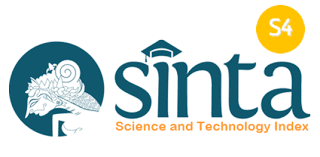Important Update: New Author Guidelines & Open Access License Effective 2025
Dear Researchers, Authors, and Academic Community,
We are pleased to announce significant enhancements to our author guidelines focusing on reference quality and citation standards. These updates ensure our journal maintains the highest academic standards and reflects current research trends.
From the perspective of authors and researchers in the academic community, the past year has marked a significant and positive transformation in scholarly publishing practices. The implementation of updated author guidelines by leading journals has fundamentally reshaped the approach to scholarly communication for the better.
The most impactful change has been the heightened emphasis on engaging with contemporary research. The requirement that the majority of references must be from the last five years has encouraged researchers to constantly update literature reviews and ensure their work engages directly with the most recent findings. This shift has accelerated progress in the field, fostering a more dynamic and relevant scholarly discourse. The academic community is now building upon a living, evolving body of knowledge rather than relying predominantly on historical texts.
Furthermore, the universal adoption of the APA 7th Edition style has brought welcome clarity and consistency to academic writing. While representing a learning curve for some scholars, this standardization has made manuscripts easier to read, review, and comprehend across disciplines and international boundaries. The recommendation to utilize reference management tools such as Mendeley and Zotero has proven particularly valuable. These tools have not only conserved considerable time previously dedicated to manual citation formatting but have also significantly reduced errors, allowing researchers to focus more on substantive research content.
Perhaps the most empowering development has been the widespread adoption of the Creative Commons Attribution-ShareAlike (CC BY-SA) license. This framework allows authors to retain copyright of their work while permitting others to share and build upon it—provided appropriate credit is given and new creations are shared under the same terms. This approach has fostered a constructive spirit of collaborative innovation, extending the reach and potential impact of research as educators, policymakers, and fellow researchers can more freely adapt and apply findings.
These developments, while initially demanding, have collectively enhanced the quality, integrity, and accessibility of academic work. They represent a meaningful commitment to a more current, collaborative, and open future for scholarly communication.
For Detail, please click TEMPLATE
Sincerely,
Devit Etika Sari
STAI Miftahul Ula Nganjuk
devitetikasari@gmail.com





